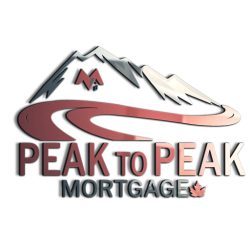Whether you are buying real estate that is your primary residence, 2nd home, land, commercial space, or rental property, it is important that you have a good understanding of when your property taxes are due, and how they are paid.
Property taxes are set annually by the City, District, or Village you live in, and calculated on a full calendar year. Most property taxes in BC are due around the same time of year; in early July. In the City of Vancouver, payments are made twice a year; in early February and also in early July.
How much do I pay?
When you receive your property tax notice in June, there will be 3 columns; the gross taxes, the taxes (after the Home Owner Grant) if you are age 65 or less, and the taxes (after the Home Owner Grant) if you are over 65.
What is the Home Owner Grant?
The Home Owner Grant reduces the amount of property tax you pay for your principal residence. If the property is not your primary residence, then you have to pay the gross taxes.
The Home Owner Grant is $570.00 for homes valued up to $1,625,000, and $770.00 if you live in a northern or rural area. Where are the northern & rural areas? A property that isn’t located in any of the following regional districts:
Closing dates for real estate transactions:
When property taxes are calculated for a calendar year, and payable in July, how does it work with real estate transactions? Your lawyer or notary calculates all the necessary adjustments and outlines the figures in your Seller Statement of Adjustments, or Buyer Statement of Adjustments. Depending on when your closing date is, the appropriate amount of property tax is designated as the either the Seller’s portion or Buyer’s portion, and calculated for the correct number of days from the closing date to the end of the year (Dec 31). The Home Owner Grant is also accounted for according to who owns the property before payment is due.
Buyers get a credit on their Statement of Adjustments on deals that close in the first half of the year and then are responsible for the full payment when due in July. Deals that complete very close to July 1 will usually see the lawyers or notaries collecting from both parties and remitting the taxes directly. They will still need the cooperation of any party eligible for the Home Owner Grant to complete it.
Tax notices are sent out in June to the owner(s) of record as of the previous March or April. If you are purchasing your property in the March to July period, after purchasing the property you should contact the municipal tax authority to confirm you are the new owner. This will ensure you receive the tax notice on a timely basis and avoid a penalty for unpaid taxes.
If you have purchased a property and you do not have the tax notice by mid June, you should obtain it directly from the tax authority, as not receiving the bill is not a recognized excuse for paying late, and the penalty will still apply.
When the bank collects a property tax portion with your mortgage:
Some prefer to have the property taxes included with the mortgage payment. Most lenders accommodate this request, a minor few, do not. The bank adds a specified amount to the regular mortgage payment, and the extra funds are placed in a tax account.
If you have this arrangement with your bank, and if you are eligible for the Home Owner Grant, make sure you sign for the Grant before the tax due date. The Home Owner Grant can either be claimed on-line, or by signing & mailing the Grant declaration on the reverse of the property tax notice; Apply for the home owner grant.
Others prefer to pay their own property taxes, however many lenders will make it mandatory to include the property taxes with the payment, especially in cases with high ratio financing.
After your completion date, if your property taxes are included with your mortgage payment, check with your lender regarding the tax portion that is being collected. This is a good practice, to ensure the lender is collecting the right amount. You may have to make a one-time deposit to the tax account by the end of June so there are sufficient funds to cover, especially if you closed your purchase in the first 5 months of the year. Banks sometimes make up overdrawn tax accounts by increasing the tax portion that is collected with each payment. It will help your planning and cash flow if you know how much is needed for your annual taxes, and how much the bank is collecting with each payment.
Feel free to email me with any questions: annie@peaktopeakmc.com.

